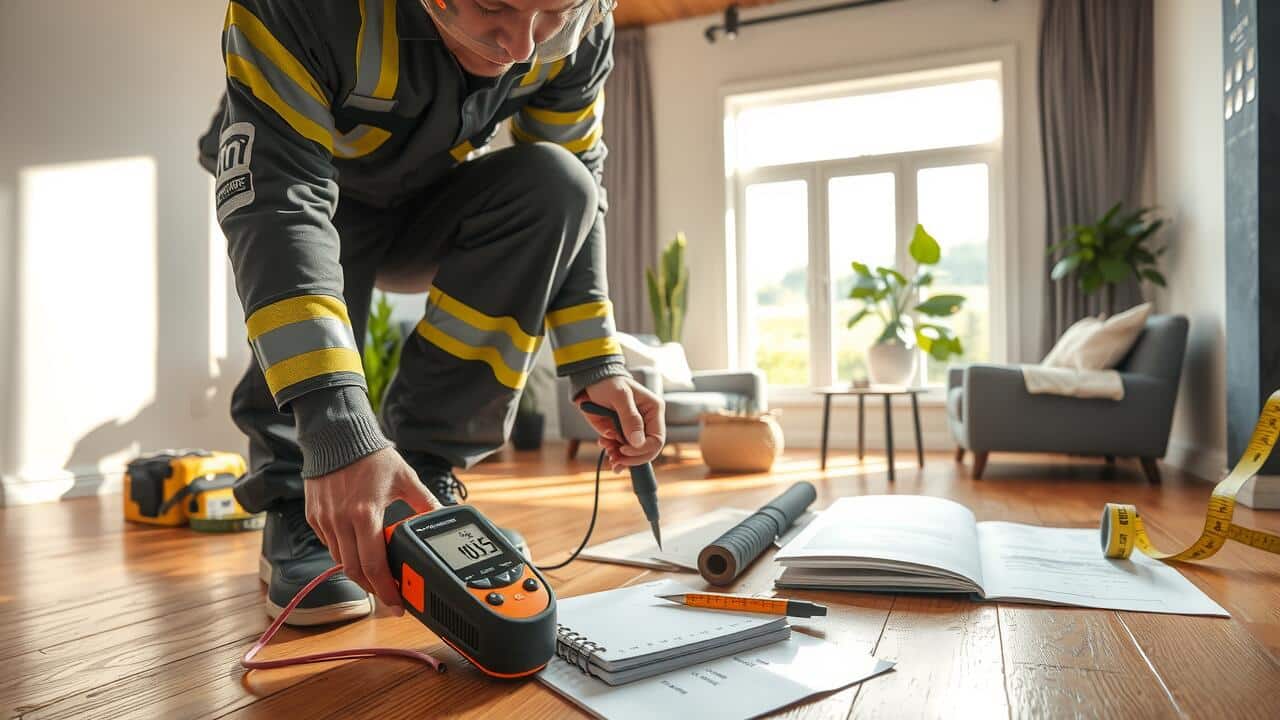
Table Of Contents
The Role of Ventilation in Moisture Control
Proper ventilation plays a crucial role in controlling moisture levels within a home. Without adequate airflow, humidity can accumulate, leading to an environment conducive to mold growth and structural damage. Effective ventilation systems not only help to expel humid air but also allow fresh air to circulate, which helps maintain a balanced indoor atmosphere. Regular moisture testing can identify areas where airflow may be insufficient, enabling homeowners to take corrective action before significant issues arise.
Incorporating exhaust fans in bathrooms and kitchens can significantly reduce moisture generated from daily activities. Opening windows and using air purifiers can improve ventilation as well. Homeowners should regularly inspect their ventilation systems to ensure they function properly. Monitoring moisture levels through moisture testing aids in assessing the effectiveness of existing ventilation and informs any necessary adjustments or upgrades to enhance humidity control.
Importance of Airflow in Reducing Humidity
Proper airflow plays a crucial role in reducing humidity levels within a home. Stagnant air can trap moisture, leading to an environment conducive to mold growth and damage to structures. Effective ventilation systems help circulate air, ensuring that humid air is vented outside while drier air is brought in. By strategically placing vents and using exhaust fans in key areas like kitchens and bathrooms, homeowners can significantly lower indoor humidity levels.
Moisture testing can further help identify areas of excess humidity that may not be immediately visible. Understanding airflow patterns and their impact on humidity can guide homeowners in making necessary adjustments to their ventilation systems. Proper maintenance of air ducts and filters also contributes to efficient airflow, ultimately supporting a healthier indoor environment.
Conducting a Visual Inspection
A visual inspection is a crucial first step in checking for moisture in your home. Begin by examining areas prone to dampness, such as basements, bathrooms, and kitchens. Look for any visible signs of water damage, such as curling wallpaper, peeling paint, or warped wood. These indicators can help identify potential problem areas that may require further investigation. Pay special attention to corners and areas around windows, as these spots are often where moisture can accumulate unnoticed.
In addition to looking for overt signs of water damage, you should also note any unusual odors that may suggest the presence of mold or mildew. Conducting moisture testing can be a helpful follow-up to a visual inspection. This process often involves using specialized tools and techniques to measure moisture levels within walls and floors. Identifying hidden moisture can prevent more serious problems down the line.
Identifying Water Stains and Discoloration
Water stains and discoloration on walls and ceilings can be clear indicators of moisture issues in a home. These stains often appear as yellow, brown, or even green patches, indicating prolonged exposure to water. Look for peeling paint or wallpaper, as these are also signs that moisture has infiltrated the area. Identifying these issues promptly can help mitigate more extensive damage.
In addition to a visual inspection, consider using Moisture Testing methods to assess the severity of the problem. Tools such as moisture meters can help determine the moisture content within various building materials. Taking immediate action upon discovering stains or discoloration can prevent mold growth and structural damage, ensuring a healthier living environment.
Professional Moisture Testing Services
For homeowners facing persistent moisture issues, professional moisture testing services offer a reliable solution. These specialists utilize advanced equipment and techniques to detect hidden moisture problems that might not be visible through a basic inspection. By measuring humidity levels and examining areas prone to dampness, they provide a comprehensive evaluation that can pinpoint the source of moisture intrusion.
Engaging a professional for moisture testing can be particularly beneficial when there are signs of water damage or unusual condensation. Experts can assess the extent of the problem and recommend appropriate remediation strategies. This proactive approach not only helps in maintaining a healthy living environment but also protects the structural integrity of the home over time.
When to Consider Hiring an Expert
If you suspect significant moisture issues in your home but lack the tools or knowledge to identify them, it may be wise to consider hiring a professional. Experts in moisture testing can provide a thorough assessment of your property. They utilize specialized equipment to detect hidden moisture levels that might not be visible to the naked eye. This targeted approach can save you time and ensure a comprehensive evaluation.
Additionally, if you’ve experienced water damage or persistent humidity problems, seeking professional help is advisable. They can recommend tailored solutions based on their findings, helping to prevent potential health risks associated with mold and mildew. Professional moisture testing not only addresses current concerns but also aids in implementing preventive measures for the future.
FAQS
What are some common signs of moisture in my house?
Common signs include water stains on walls or ceilings, peeling paint, mold growth, musty odors, and increased humidity levels in the air.
How can I check for moisture without professional help?
You can conduct a visual inspection for water stains and discoloration, use a moisture meter in areas like basements and bathrooms, and pay attention to any unusual odors.
What role does ventilation play in controlling moisture?
Proper ventilation helps to increase airflow, which can reduce humidity levels and prevent moisture buildup, leading to a drier and healthier indoor environment.
When should I consider hiring a professional for moisture testing?
You should consider hiring an expert if you notice persistent moisture issues, find extensive mold growth, or if you want a thorough assessment of your home’s moisture levels.
Can high humidity levels in my home cause health issues?
Yes, high humidity levels can lead to mold growth and dust mites, which can cause respiratory problems, allergies, and other health issues, especially for those with pre-existing conditions.
